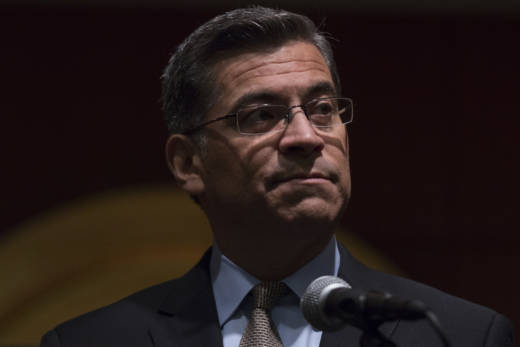California Attorney General Xavier Becerra has released new guidance and model policies on how public institutions across the state should comply with so-called "sanctuary" policies.
The policies outline best practices for collecting, retaining, and disclosing client information, addressing immigration status inquiries and how to respond to Immigration and Customs Enforcement activities.
"The Attorney General's office did provide quite a bit of detail," Angela Chan, Senior Attorney and Policy Director for Advancing Justice Asian Law Caucus, said. "In explaining the difference, for example, between a warrant signed by a judge versus an administrative warrant signed by only an ICE agent. It gave examples of those in the appendix of the model policies and also advised on making sure courthouse employees are trained and given examples of these differences."
The model policies were issued as part of the guidelines laid out in Senate Bill 54, or the "California Values Act," which first established sanctuary laws in the state. The Attorney General's guidelines were issued for state-run colleges, libraries, hospitals, clinics, courthouses, shelters and labor agencies. But only those run by state or local governments are required to adopt these — or equivalent — guidelines.
"I think the overarching goal of this particular model policy for courthouses, and really for all the public agency model policies, is to allow people to access these public agencies — like courthouses — to access justice regardless of immigration status," Chan said. "And not to have to be afraid of ICE enforcement activity."

